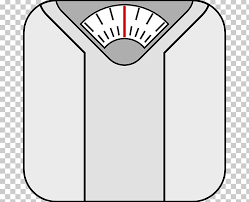I see people are chiming in with their own experiences with IF, so here’s mine: I’ve been doing IF for about 4 months myself and it’s done wonders for me and positively changed my lifestyle. I lost weight much easier than ever before, but it’s hard to tell how much of that is because of IF itself and how much is due to the dietary changes I implemented at the same time (zero processed food, significantly reduced sugar intake, etc…).
However, the biggest benefit I got from doing full IF is that it’s become much easier for me to go without food for longer periods of time. I noticed this particularly on my most recent business trip, where I’d planned to travel for 6 hours starting at 6 AM with a rather hectic itinerary and several changeovers, so there wouldn’t have been enough time to stop for snacks. When I arrived at my destination, I realised that I’d woken up, ate nothing, and then spent 6 hours on the road without even having thought of food.
I also noticed that it’s become possible for me to switch from an eating-for-pleasure to an eating-for-sustenance mode without having to struggle with cravings and trying to suppress them.
My entire plan was as follows:
First I spent 6 weeks avoiding all sugar, just to reset my tolerance, so to speak. This was by far the hardest part. At the same time I got myself a so-called “multi-cooker”, which is basically an air fryer and pressure cooker combo, because it seemed to me that it would make cooking and preparing large quantities of healthy food easier (that did prove to be the case).
At the same time, I started IF by allowing myself to eat only between 9 AM and 1 PM, unless I don’t have access to food during that window (for example because I’m travelling and didn’t have time to prepare food for the trip). Initially, I still counted calories when I ate even during that window, but then I noticed it was becoming effortless for me to not overeat. As long as I didn’t introduce unhealthy food into the diet, calorie counting was no longer needed. In fact, I swung so much the other way at one point that I had to make sure I was getting enough food into my stomach during that four-hour window. I only ate one or two meals at most a day.
I was already working out regularly before IF, but it wasn’t enough to maintain a healthy weight and make me feel energetic overall. I realised that after making changes to my diet.
After a while of doing IF, I started relaxing the rules a bit, especially with regards to what I’m not allowed to eat. However, I made sure to measure waist circumference and overall weight at least once a week and to take corrective measures as needed. I found that I’m able to have a chocolatey treat once or even twice a week, but still maintain a healthy weight. I still fast every day, but sometimes I extend the meal window to, say, 3 or 5 PM. I think that finding this balance after the initial period of culinary deprivation is an important final step in the journey, and is not to be underestimated. This was perhaps the second-hardest bit after quitting sugar abruptly (the withdrawal was real, albeit brief).
I can’t stop reading your comment with your username in mind lol
😂
Started IF a few wees ago. Doing 5 days on, 2 off.
Doing it mostly for weightloss but also for the various probable health signals.
What I’ve found is its pretty easy and when it does come time to eat, I’m also not overeating and get full faster.
This is definitely easier to keep up than calorie counting.
I definitely have slimmed down a little in the short time I’ve been doing it. I haven’t weighed myself.
I do also work out 3x a week via hour-long rowing sessions, but that’s not new.
No idea why I posted this beyond that the OP caught my attention due to me starting IF recently :D
Using 5:2 (day) fasting I was fairly successful a few years ago. I think since I did 5:2 I am now in a much better place for plain calory-counting (if I used up my calories I know I will last the rest of the day without food).
Maybe I’ll pick it up again at some point, potentially combined with calorie counting. on the feeding-days.
I read about the 5:2 and it seems quite doable and reasonable.
We learn from each attempt and the last one informs the future ones. I’m coming up on my 9th anniversary of my first log entry, July 9th 2014. Its on July 9th every year that I decide my strategy for the coming year. Counting is dead simple and second-nature now, but I remember and know it’s hard to start.
It’s interesting to see how different news organizations write the title of this research. I think this one is the most fair. I’ve also seen “IF no better than counting calories” which is technically true but also paints IF in a negative light, since the research seems to show either way can be effective.
I did find that IF worked really well for me when I tried it back in 2018, but when I went off it I gained weight back very quickly. I’m currently just doing CR and counting my macros with the macrofactor app and it’s also working well. The good thing about previously doing IF is that I’m no longer super freaked out/it’s not the end of the world if I have to skip a meal for some reason.
The photo caption currently says, “New research finds that people who try time-restricted eating can keep it up longer than people who count calories,” which I don’t see in the article as being attributed to this research.
In fact, the study conclusion is: Time-restricted eating is more effective in producing weight loss when compared with control but not more effective than CR [calorie restriction] in a racially diverse population.
I did some markup that I think explains Intermittent Fasting (IF) in a simple way. Critiques are welcome.
Intermittent Fasting (IF). IF works by setting an 8 hour window, during which you eat normally and outside of which you do not eat yet. When you do eat in that window, you do not add any food – don’t jam 12 or 16 hours worth of food into an 8 hour window.
BEFORE Starting Intermittent fasting (example day)
- Breakfast (7:00 AM) Cereal with milk and fruit
- Snack (10:00 AM) Fruit
- Lunch (12:00 PM) Sandwich on whole-wheat bread
- Snack (3:00 PM) Trail Mix
- Dinner (6:00 PM) Grilled salmon with roasted vegetables
- After Dinner (8:30 PM) Popcorn
Intermittent Fasting 11:30am-7:30pm
Breakfast (7:00 AM) Cereal with milk and fruit(not eaten)Snack (10:00 AM) Fruit(not eaten)- Lunch (12:00 PM) Sandwich on whole-wheat bread
- Snack (3:00 PM) Trail Mix
- Dinner (6:00 PM) Grilled salmon with roasted vegetables
After Dinner (8:30 PM) Popcorn(not eaten)
Both Calorie Counting and Intermittent Fasting work well for weight loss, as long as in counting you are 100% complete and your accuracy is reasonable; and, in IF, you only eat 8 hours worth of food during your 8 hour window and do not add any. Both are permissive and flexible (if you eat more on Friday night because of a social occasion, you can flex that by eating lighter earlier or later). Don’t eat the same thing every day, but vary your meals.
One key thing seems to be support. Get and give support with others here so that you learn and improve and don’t bear your burdens alone. Weight-loss and fighting temptation can be a lonely business, and nutrition can feel too complex to ever understand, but we have a good group here and together we generally point in the right direction.
There’s an interesting side-note that may turn out to be a main point. Dr. Adam Glidden wrote Time-Restricted Eating for Treatment of Obesity? The Devil Is in the (Counseling) Details but the article is paywalled. Just going on the title, and what was said in the NPR article, clearly this was not just a minor good-to-know.
I got a lot of my support from visiting forums like this one nearly daily. I also am a member of a Take Off Pounds Sensibly (TOPS) chapter that meets in person weekly for accountability, education, and group peer-support. Sometimes these forums and TOPS can be a little corny and social, but it gets the job done.
It’s one of those things where we get out of it what we put into it. Participate and it won’t feel so lonely, teach and you will learn, explain and you will understand better. But the side-note or other main-point of this study – in this study – is that getting support in your journey counts.



